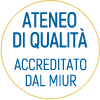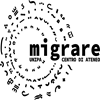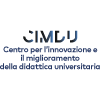Faculty of Engineering
LM-31 – MANAGEMENT ENGINEERING
LM 31 – INGEGNERIA GESTIONALE
Educational objectives – professional opportunities for graduates
The course focuses on the managerial education of operations engineers. The educational objective is to provide students with advanced, specialist and scientific knowledge of managerial issues, from project management to innovation management, marketing, business finance, strategy, supply chain management, design, and customer satisfaction management.
The course includes disciplines characterising the methodological background of a 2nd level engineer, viz. advanced statistical methods for data analysis, design, risk analysis and modelling methodologies for business processes. The course offers the following three curricula:
1. “Manufacturing industry” curriculum which aims at specialising students in the product-process pair, that is, the production of innovation through the production of innovative products and processes;
2. “Industrial plants” curriculum , aiming at investigating the company-industrial plantpair , that is the implementation of a business project through the plant;
3. “Company networks” curriculum which focuses on the planning of business activities through company networks, and networking strategies sustained by ICT, and through the relationship with the public sector.
Operations engineers are the answer to the need for cross skills experts. They represent a versatile professional profile with a thorough technical and methodological grounding. Thanks to their engineering approach to managerial and organisational issues, prospective management engineers have a deep understanding of business phenomena. For these reasons, there is a wide range of professional opportunities for graduates of this course. These range from industry, service companies, public administration to finance. Management Engineers are particularly sought-after in consulting companies, but they also possess an adequate grounding to start a private practice, or new businesses.
EDUCATIONAL PROGRAMME
| 1st YEAR | Credits |
| Business Finance | 6 |
| Management of Technological Innovation | 6 |
| Statistical Methods for Risk and Innovation Management – integrated course - Module I - Module II |
6 6 |
| Marketing | 6 |
| Project Management | 9 |
| Business Processes Modelling | 9 |
| Elective Courses | 9 |
| 2nd YEAR | Credits |
| Quality Management in Services | 6 |
| Industrial Organisation and Strategies | 9 |
| Logistic chain Management | 9 |
| Group of Optional Educational Activities | 18 |
| Stage, Practice and other Educational Activities | 6 |
| Final Examination | 15 |
| Group of Optional Educational activities II | Credits |
| Unconventional Processing | 6 |
| Public sector Economics | 6 |
| Operational Production Planning | 6 |
| Plant design and Industrial Safety Design - Module I - Module II |
6 6 |
| Product/process Integrated Production and Innovation Systems - Module 1 - Module 2 |
6 6 |
| Strategies and Technologies for Business Networks - Module 2 - Module 1 |
6 6 |
| Stage, practice and other educational activities | Credits |
| Stage - 6 credits | 6 |
| Stage - 3 credits | 3 |
| Other Educational Activities – 1 credit | 1 |
| Other Educational Activities – 2 credits | 2 |
| Other Educational Activities – 3 credits | 3 |
| Other Educational Activities – 4 credits | 4 |
| Other Educational Activities – 5 credits | 5 |
| Other Educational Activities – 6 credits | 6 |
| Stage - 5 credits | 5 |
| Stage - 4 credits | 4 |

















